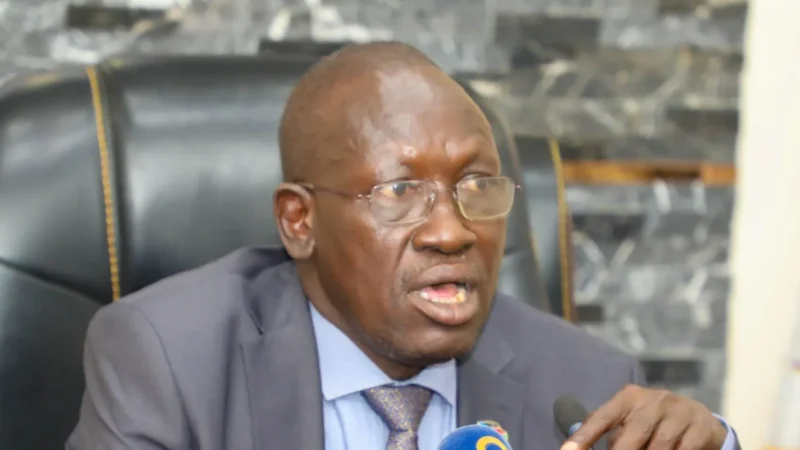Prime Minister Robinah Nabbanja today oversaw the handover of the iconic Entebbe Botanical Gardens from the Ministry of Agriculture, Animal Industry and Fisheries (MAAIF) to the Uganda Wildlife Conservation Education Centre (UWEC).
This handover marks a new chapter for one of Africa’s oldest Botanical Gardens, established in 1898 and a home to over 115 bird species. UWEC will now manage the Gardens on behalf of the Ministry.
This decision aims to unlock the Gardens’ full potential, revitalizing its infrastructure, trails, and amenities while enhancing security and implementing new marketing strategies. The transfer was witnessed by Tourism Minister Tom Butiime and key industry stakeholders.
A day earlier, Tourism minister Butime officially announced the complete transfer of the management for Entebbe Botanical Gardens.
According to Butime, the gardens will now fall under the direct management of the Uganda Wildlife Education and Conservation Centre -UWEC, a statutory body under the ministry. He added that this move will enable UWEC to offer visitors a seamless experience, combining fauna and flora attractions, ultimately enhancing revenue generation.
Butime revealed this development on Monday when the spouses of delegates attending the G77 summit visited UWEC, conveniently situated near the splendid gardens.
In his comments on the matter, the minister added that the next step involves waiting for funds to facilitate the transformation of the gardens to enhance plant management, research, and tourism services in an improved and more effective manner.
The initiative was set in motion by a presidential directive issued last year to the Prime Minister. This directive came in response to reports of mismanagement of the gardens and concerns raised by visitors regarding security issues, including threats of its existence from various encroachers.
In a letter addressed to the Prime Minister in May, the President issued an order for the transfer of the gardens to the tourism sector. Simultaneously, the President explicitly instructed that the National Agricultural Research Organization (NARO), which had been overseeing the gardens, should continue its plant-related research without any interruption.
The President’s letter was prompted by reports indicating that portions of the gardens had been leased to Megha Industries for the expansion of the Victoria Mall sewage system. Simultaneously, concerns were raised about possible land grabbing due to suspicious constructions within the gardens.
Dr. Ambrose Agona, the then Director General of NARO, had clarified that the construction on the offshore section of the extensive gardens was aimed at rehabilitating and enhancing the facilities. The goal was to enable the gardens to fulfill their core functions, including conservation, research, education, awareness, and providing a tranquil environment for the public.
Commenting on the matter, State Minister for Tourism, Martin Mugara Bahinduka, expressed positive sentiments, stating that the transition is beneficial. He emphasized that the change in management should not be perceived negatively by the former administration, as collaboration will continue. However, he acknowledged that UWEC is expected to address some management challenges that have been identified over the years.
Minister Bahinduka further highlighted that the move will lead to the expansion of UWEC, alleviating issues of overcrowding. Additionally, it will introduce components such as flora tourism, nature walks, and related activities to further enrich the offerings of the institution.
Dr. James Musinguzi, the Executive Director of UWEC, welcomed the move, acknowledging its potential to enhance the institution’s functionality. However, he refrained from offering further details on the matter, indicating that he awaits the formal handover to fully understand how the management transition will unfold.
However, he emphasized that with UWEC’s expanded activities and the inclusion of the botanical gardens under their purview, there is a pressing need for additional funding to reach the required standard as an educational and conservation center.
The botanical gardens were initially established exclusively for the examination and development of agricultural resources before their transfer to large farms and open ecosystems. In 1995, management of the gardens was placed under NARO.
Over the years, the gardens have evolved beyond their initial function as an agricultural research facility, transforming into a renowned tourism center. Appreciated for its stunning landscapes, beautiful plants, refreshing shade, and cool environment, it has become a celebrated destination for its diverse flora, fauna, and scenic lakeshore.
Currently, visitors are charged entrance fees ranging from 2,000 to 20,000 shillings to experience the unique offerings of the premises.











